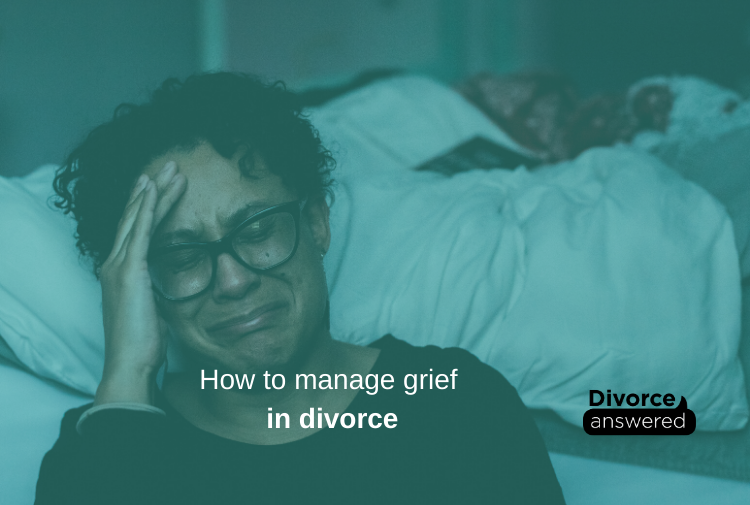
HOW TO MANAGE GRIEF FOLLOWING THE END OF YOUR RELATIONSHIP
Grief and divorce are synonymous. After break-up, you may grieve the end of your relationship, your future dreams have gone and a what appears to be scary changes are ahead. Rachael Scharrer, Life Change Counsellor, divorce expert and founder of www.DivorceAnswered.com.au, shares tips for identifying and managing grief in divorce.
Grief is essentially loss. The loss of your relationship and the life that you had with your ex-spouse. Different cultures manage grief in different ways. Different cultures also have different expectations for getting through grief.
Here are 7 misunderstandings and erroneous societal expectations expect a grieving individual to (and there are so many more!):
Grief affects almost every part of who you are as a person. When you realise this, you will be more understanding of why grieving can be prolonged, come in waves of joy and sadness. Often people need extra support from family, friends and professionals when going through this process.
To elaborate, grief in divorce touches so many different parts of you –your economic, emotional, social and self-identify facets shifted. Here Rachael Scharrer highlights some of the changes that people grieve explores more:
ECONOMIC CHANGES
• You now have to go on a budget
• You can’t afford the same luxuries or lifestyle
• You may need to move homes. Read more about the benefits of moving
• Your children may need to share a bedroom. Read more about ‘should children share a bedroom’
• Perhaps you have to move home with parents. Read the article ‘from Break-up to boomerang’
• Divorcing is expensive. Finding ways to reduce your legal fees becomes more important and finding ways to save money or get professional advice in cost efficient ways. Read more about ‘what to do if you can’t afford a lawyer’, and read about ‘five ways to reduce your legal fees’
EMOTIONAL CHANGES
• You are likely to experience a roller coaster of emotions – joy and relief, sadness and fear, depression and anxiety are among a few
• You may feel like you are two people at the same time. Read more about the duality of feelings in separation
SOCIAL CHANGES
• Your friends change. Some will get closer to you and others will become distant. Read more about separation and your friends and separation and the changing state of friends
• You may notice that your friends grow tired of listening to your drama and woes. Your friends may experience emotional exhaustion from listening to your concerns for so long
• You are no longer invited to dinners for ‘couples’
IDENTITY CHANGES
• You are no longer someone’s partner/husband/wife/significant other
• Your vision/dreams/aspirations that you had with your ex-partner have vanished
• You may feel isolated and lonely. Read more about overcoming isolation and loneliness as a single parent
• You may have to find a way to raise your children on your own without your extended family as a support network. Read more about how to raise a family without a family
The good news is that there is help – you don’t have to remain as a divorce victim and you can help yourself to find the positive in your life, recover from your grief and life your life to the fullest. The following articles may provide some assistance:
• How to reclaim your identity after break-up
• Learning to self-love after divorce
• Moving on (and removing your rings)
• The benefits of single parenting
• Deciding not to be a divorce victim
• Share with your friends and let them know What not to say to your divorcing friend
Every person will grieve in their own way and grieve their own time. It’s important to accept the feelings of sadness, hurt and loss. There isn’t a prescription for how long is acceptable to be sad or how quickly you need to ‘get over it.’ If you find that your feelings of loss is overwhelming, it is important that you seek professional assistance from your GP or therapist.
When your world is ‘turned upside-down’ you need time to heal and process before working towards your new life vision and goals. Having the right team of people supporting you during an emotionally overwhelming time can make a big difference between finding a sense of ease in your separation and feeling alone and low. Your friends and family for a part of your support network. Your lawyer, accountant and financial advisor also play their part. You can have one person that is across all facets to help and guide you through the process, you Separation Strategist. A strategist is the person on your team to guide and support you, help you to plan your course of action while emotionally supporting you through the process. You can read more about how a separation strategist is crucial to your divorce journey here